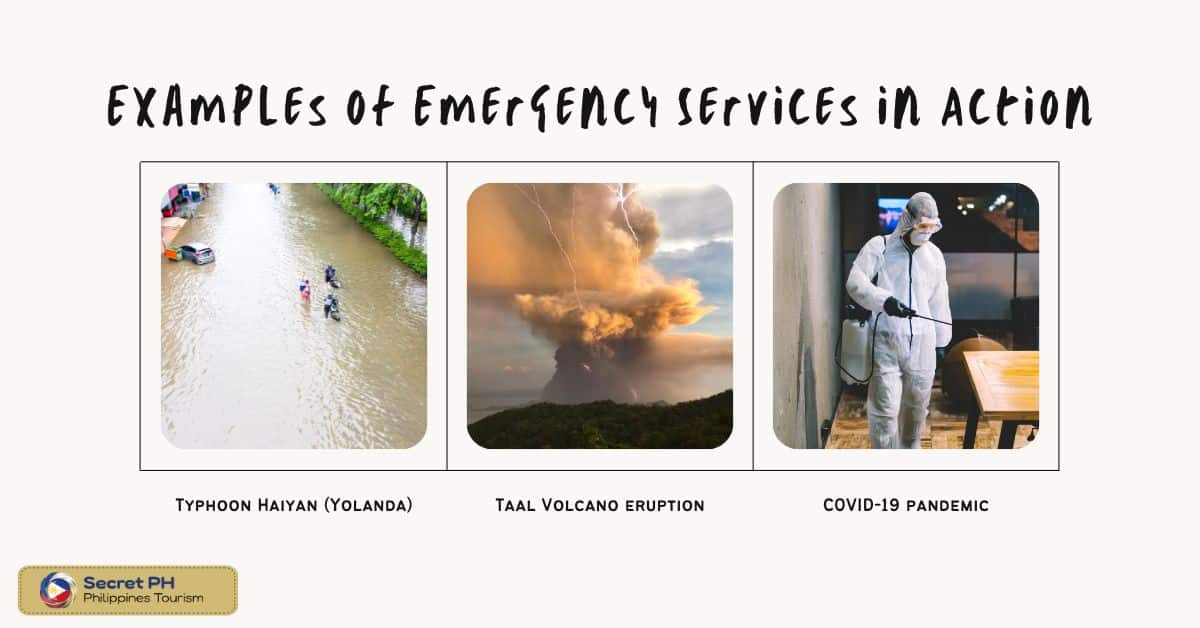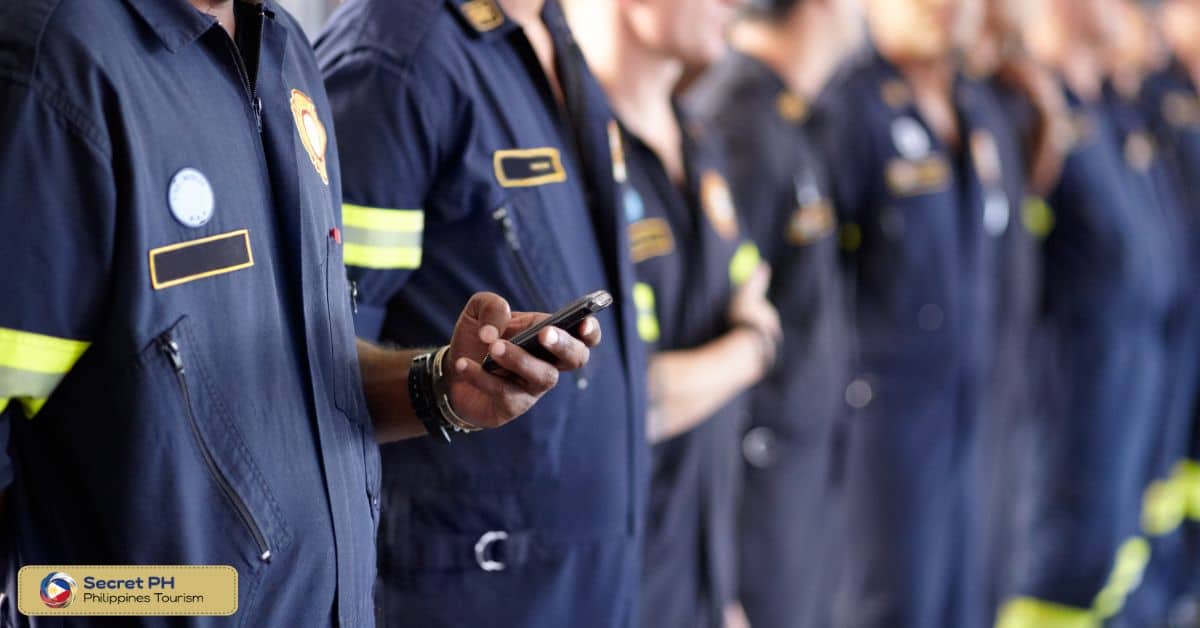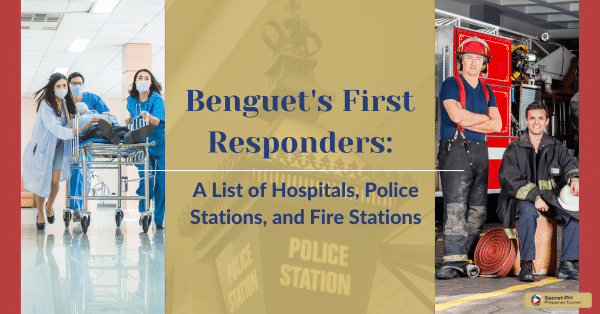The Philippines’ emergency services are responsible for ensuring healthcare access during emergencies. They provide emergency medical services, rescue operations, and disaster response efforts. These services are crucial in ensuring that people in need of urgent medical attention receive timely and appropriate care. The government and private organizations work together to improve the quality and accessibility of emergency healthcare services in the country.
Join us as we journey through the world of emergency healthcare in the Philippines and discover the heroes who work tirelessly behind the scenes to make it all happen. In this blog post, we’ll take a closer look at the Philippine emergency services and how they continue to meet the healthcare needs of the public during times of emergency.

Significance of Emergency Services in the Philippines
Emergency services play a crucial role in ensuring public safety and response during disasters in the Philippines. The country is prone to natural disasters like typhoons, earthquakes, and volcanic eruptions. Such services are essential in mitigating the impact of these events. Emergency services are responsible for prompt responses during accidents, medical emergencies, and law enforcement.
The significance of such services is essential in saving lives, and property. This ensures the efficient mobilization of resources during times of crisis. The government and other stakeholders invest in emergency services to ensure prompt responses and adequate preparations in times of need. The contribution of emergency services in the Philippines has been vital over the years and continues to be essential in the maintenance of public safety.

Emergency Services in the Philippines
In times of crisis, Emergency Services play a crucial role in ensuring safety and saving lives. In the Philippines, these services are no exception. From medical emergencies to natural disasters, these dedicated professionals are always on the front lines, ready to lend a helping hand. Their unwavering commitment to serving the community has been vital in saving countless lives. Their efforts should not go unnoticed.
Emergency response system
Emergency services in the Philippines are crucial for promoting safety and security across the country. The emergency response system is designed to provide quick and effective assistance during times of crisis. From natural disasters to medical emergencies. The system is equipped to handle various situations. Emergency response teams are composed of trained professionals who are ready to respond to calls 24/7.
From paramedics and firefighters to police officers and rescuers. These individuals work diligently to ensure that those in need receive the necessary care and support. With a well-coordinated emergency response system in place, the people of the Philippines can rest assured that help is on the way in times of crisis.

Public hospitals and health centers
In the Philippines, public hospitals and health centers play a crucial role in providing emergency services to citizens in need. These facilities are equipped with the necessary tools and medical personnel. They attend to urgent health concerns that require immediate attention. In various instances, these public health providers have been instrumental in saving countless lives.
Notably, they provide services to all, irrespective of an individual’s economic status or social standing. Despite the government’s efforts to ensure these facilities are adequately staffed and equipped. The demand for such services still outweighs the supply due to the country’s population density.

Private hospitals and clinics
Private hospitals and clinics are becoming increasingly popular choices for emergency medical services in the Philippines. With state-of-the-art facilities, skilled medical professionals, and high-quality care. The private hospitals and clinics offer a reliable and efficient solution in times of crisis. These establishments prioritize patients’ medical needs and provide quick response times to emergencies.
Moreover, they provide a comfortable and stress-free environment that contributes to patients’ overall well-being. From minor injuries to severe medical cases. These hospitals and clinics are equipped to handle any medical emergency with competence and professionalism. With their focus on individualized care, patient satisfaction, and quality health services, private hospitals, and clinics are the preferred choice for many people in the Philippines.

Examples of Emergency Services in Action
Emergency services play a critical role in protecting the community during times of crisis. The Philippines is no exception as it has faced its fair share of natural disasters including typhoons, earthquakes, and volcanic eruptions. They work tirelessly to provide rescue and relief operations, and medical assistance, and distribute essential supplies to those affected.
These brave men and women put their lives on the line every day to ensure the safety and well-being of their communities. Their commitment and dedication to serving others during the most challenging moments is truly admirable and inspiring.

- Typhoon Haiyan (Yolanda) – In November 2013, Typhoon Haiyan (locally known as Yolanda) devastated the Philippines. Despite the scale of destruction, emergency services quickly got to work to provide relief to those affected. The Philippine government channeled aid from around the world, while its own military and police force mobilized to distribute supplies and help with search and rescue efforts. It was a remarkable display of emergency services in action, with first responders working tirelessly to bring hope and support to the communities affected.
- Taal Volcano eruption – The Taal Volcano eruption in the Philippines was an event that showcased the impressive work of emergency services. From the prompt evacuation of residents to the distribution of aid, every agency involved worked seamlessly to mitigate the disaster’s effects. Despite facing significant challenges such as ashfall, communication problems, and transportation difficulties, the emergency responders worked tirelessly and efficiently to preserve lives and protect property.
- COVID-19 pandemic – As the COVID-19 pandemic continues to affect millions of people worldwide, emergency services in the Philippines have stepped up to provide essential aid and support. From dedicated COVID-19 hotlines to mobile testing facilities and quarantine centers, the country’s emergency response teams have been working tirelessly to ensure that communities remain safe and healthy. Through the use of advanced technology and strategic planning, these services have played a critical role in mitigating the impact of the pandemic on the Filipino people.
Measures Taken to Ensure Healthcare Access During Emergencies
During emergencies, access to healthcare becomes a critical need for individuals. In the Philippines, measures have been implemented to ensure that healthcare services are readily available to everyone during a crisis. These efforts have proven crucial in providing immediate medical attention to those who need it the most, especially in times of calamities like typhoons or earthquakes. With these measures in place, the healthcare system in the Philippines aims to continue to cater to the needs of its citizens, no matter the circumstance.
Implementation of the Universal Health Care Law
The implementation of the Universal Health Care Law in the Philippines is a huge leap toward ensuring healthcare access for every Filipino, especially during emergencies. Measures taken to accomplish this include the establishment of Health Emergency Management Bureaus in every region which coordinates the response of relevant agencies in times of calamities and disasters.
Additionally, emergency programs such as the PhilHealth Point of Care and the No Balance Billing Policy ensure that patients receiving medical attention during an emergency are not bankrupted by medical expenses. The government’s efforts to ensure the accessibility of healthcare during emergencies have positively impacted the country’s health sector, resulting in more Filipinos having access to quality healthcare services.

Creation of emergency medical teams
The Philippines is highly prone to natural disasters, such as typhoons and earthquakes. In light of this, the government has taken measures to ensure that healthcare access is available even during emergencies. The creation of emergency medical teams is one such measure. These teams are composed of highly skilled healthcare professionals who can quickly deploy and provide the necessary medical assistance during disasters.
They are trained to assess the situation, provide emergency care, and coordinate with other agencies in providing aid. The teams also work in collaboration with the local healthcare workers to ensure continuity of care.

Disaster risk reduction and management
Disasters can strike at any moment, leaving communities vulnerable and in dire need of aid. In the Philippines, Disaster risk reduction and management measures are put in place to ensure access to healthcare during emergencies. Through effective disaster preparedness plans, healthcare facilities are able to respond to the needs of affected individuals in a timely and efficient manner.
Medical supplies and equipment are stockpiled and healthcare workers are trained to provide emergency care to those in need. Because disasters can often result in the destruction of infrastructure, mobile healthcare units are also deployed to provide medical assistance in hard-to-reach areas.

In Conclusion
In the Philippines, emergency services are working towards ensuring that people have access to healthcare during emergencies. With a focus on being proactive and efficient, these services provide a crucial lifeline to those in need. Through effective communication and swift action, emergency responders are able to make a positive impact on the lives of thousands of people each year.
While challenges remain, such as inadequate funding and limited resources, the dedication and commitment of those working in the emergency services sector cannot be overstated. This ongoing effort is helping to improve healthcare accessibility and save lives during emergencies in the Philippines.








